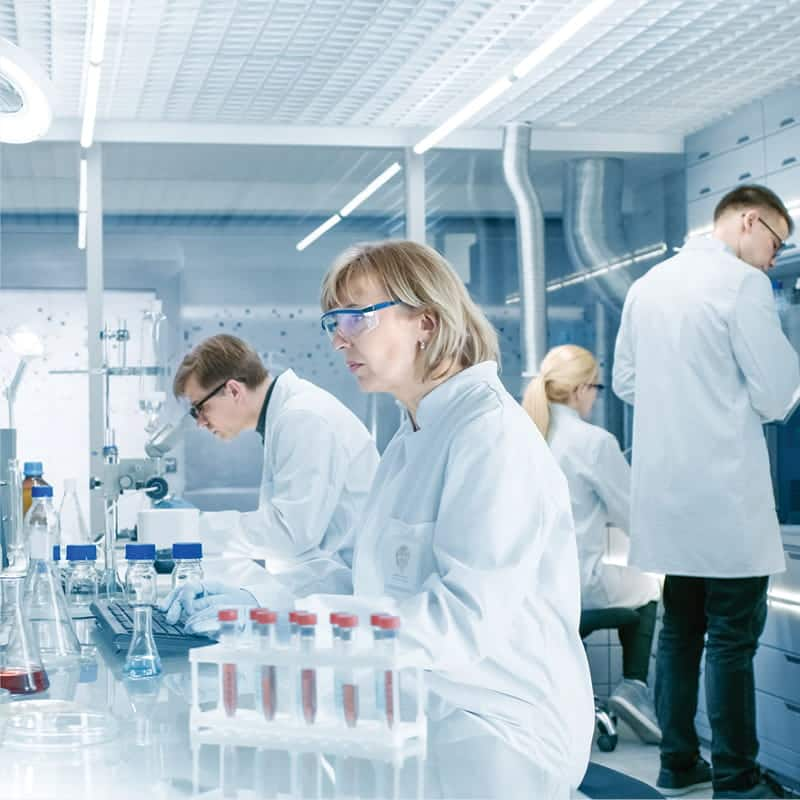Sustainability and resilience are core business issues in the life sciences sector, given the sector's central role in addressing systemic global challenges including pandemics, access to medicine, and fundamental human rights.
Although the specific factors from an environmental, social and governance (ESG) perspective in the life science industry differ from those of other industries, creating new and sustainable value in the life science space will depend upon how companies address relevant ESG risks.
Boards must actively identify such ESG risks and ensure that they are efficiently mitigated in order for their companies to avoid pitfalls and ensure compliance with evolving regulation around the globe – and also to maintain their competitive position and profitability.
On the basis of our experience in the sector, we believe the following sustainability-related themes to be the core ESG issues that will continue to affect life science businesses:
Access and affordability: Addressing unmet healthcare needs, increasing access to affordable essential medicines and strengthening health systems around the world are all fundamental to social and economic progress. The coronavirus disease 2019 (COVID-19) has further highlighted the importance of the life sciences sector in addressing these challenges. Against this background, international life science business will need to engage in discussions about and develop strategies addressing these issues across the world, particularly with regard to improving the situation in lesser developed countries.
Supply chain compliance: Many governments and regulators around the world are implementing tighter rules on supply chain compliance. To retain their license to operate, life sciences companies must adhere to an evolving set of global laws and regulations. Furthermore, transparency requirements, as well as responsibility and liability for global suppliers are increasing. This ongoing regulatory shift, and the increased likelihood of litigation which goes with it, will have a significant impact on the global life sciences industry. This is because supply chains are often particularly lengthy and complex and influenced by many different internal and external factors that are hard to monitor and control.
Product safety and quality: Fake or substandard medicines lead to hundreds of thousands of deaths each year. Drug safety, along with protecting health consumers from counterfeit medicines and drug diversion, are integral to ensuring public health and maintaining trust and confidence in the life sciences sector. Consequently, life science companies will need to put increasing focus on ensuring product safety as well as maintaining secure distribution channels to patients.
Business ethics: There is increasing stakeholder attention, including from regulators and policymakers and also from providers of capital, on transparency and ethics in business dealings with healthcare providers and medical practitioners for the sale and use of products, as well as in relation to lobbying and advocacy activities. The way in which businesses respond to these expectations can have a direct impact upon their reputation, their cost of capital and ultimately upon their license to operate.
Transparency and access in clinical trials: Stakeholders increasingly expect transparency in clinical trials and wider access to trial data for scientific exchange and research. There is a bright spotlight on participant safety and privacy. Businesses are demanding more effective information sharing to enable informed decision-making and consent, along with post-trial access to results. Technology and collaborative partnerships with patient and health worker groups enable wider representative demographic populations to participate in clinical trials.
Sustainable sourcing, product lifecycles and a circular economy: Markets demand greater visibility across product lifecycles, businesses make commitments to net-zero decarbonisation and business model innovation is driven by circular economy concepts. Underpinned by an increasingly complex transnational regulatory landscape, these developments are changing the way raw materials are sourced; how products are designed, manufactured, packaged, sold, reused or recycled; how waste and hazardous material is treated; and how wider environmental and social impacts relating to issues like emissions, plastics, water use, biodiversity loss, labour conditions and community impacts are managed.
Net-zero decarbonisation and optimisation of processes: In striving to decarbonise the economy, businesses are implementing commitments to Science Based Targets, increasing energy efficiency and reducing carbon output, decreasing dependency on fossil fuels and increasing the use of renewables. The implementation of these initiatives is creating operational efficiencies, optimising the drug manufacturing, packaging and distribution process and reducing costs across the sector.
Find out more about ESG at DLA Piper








